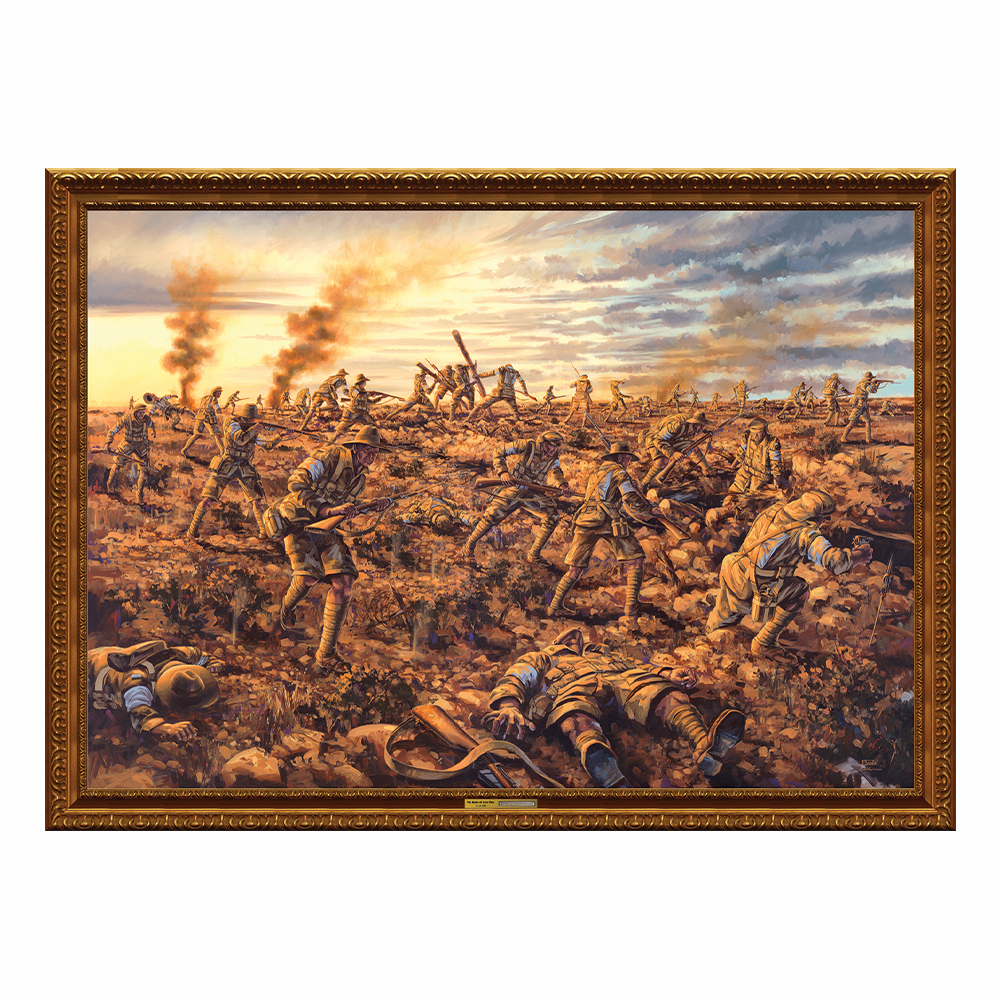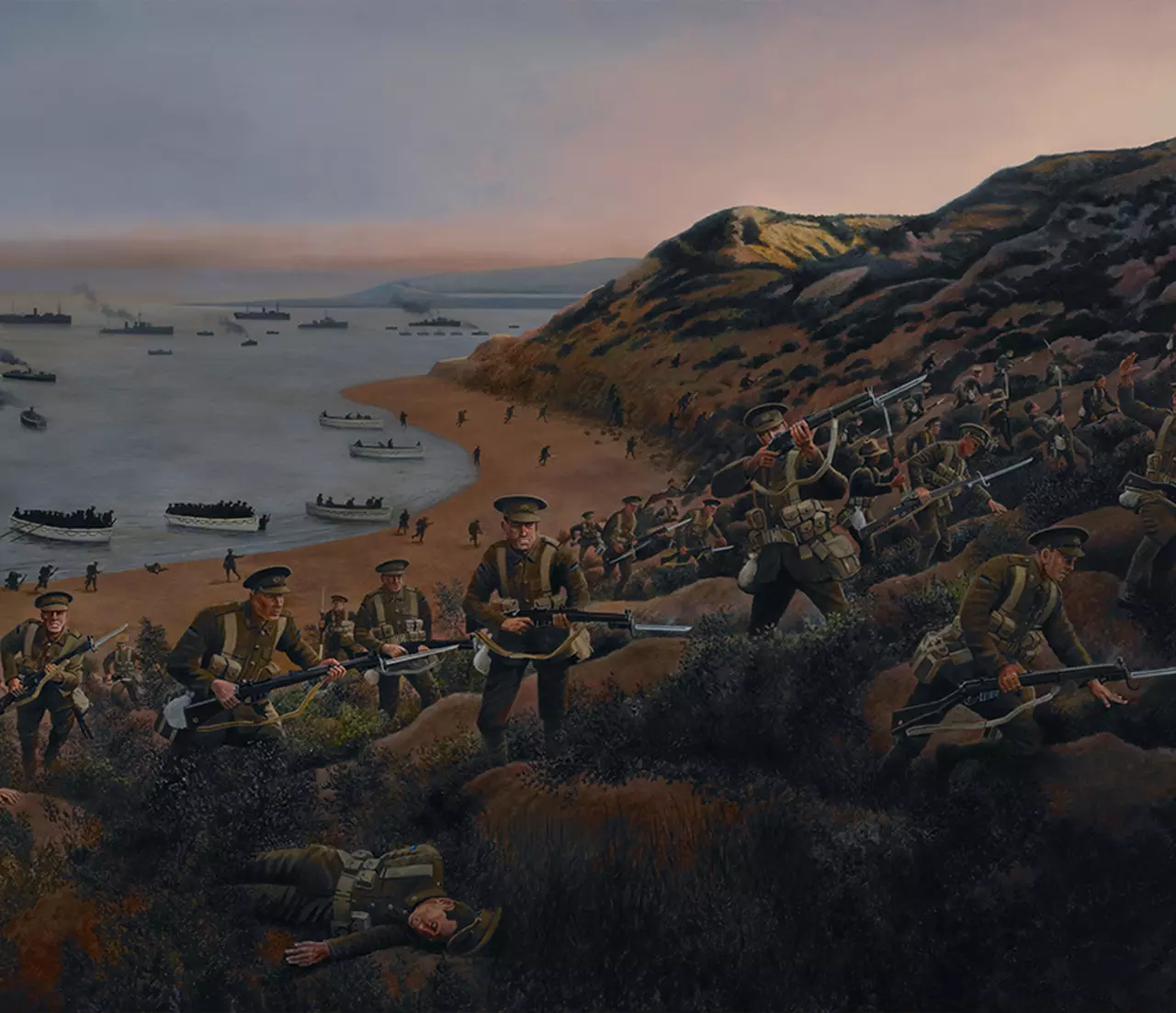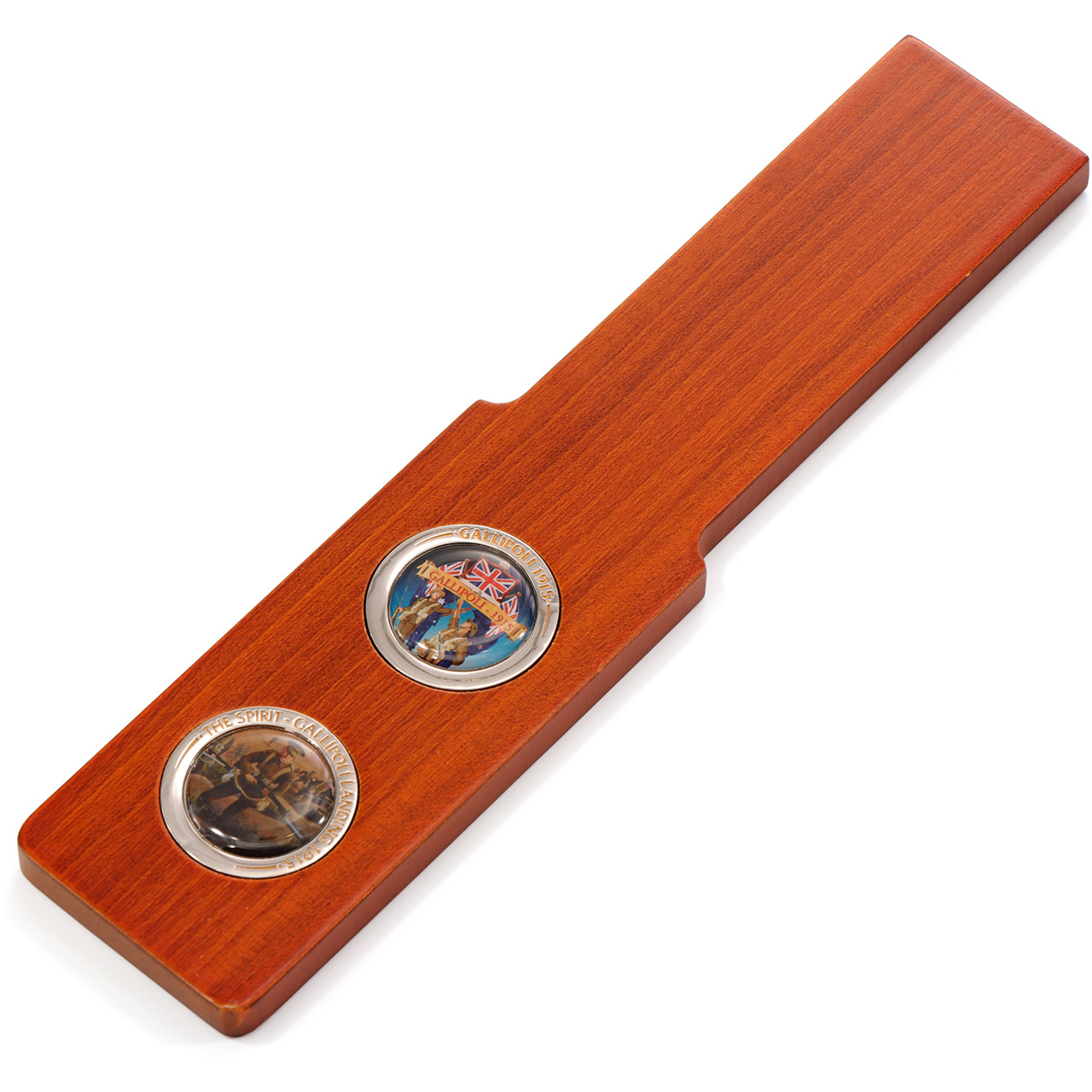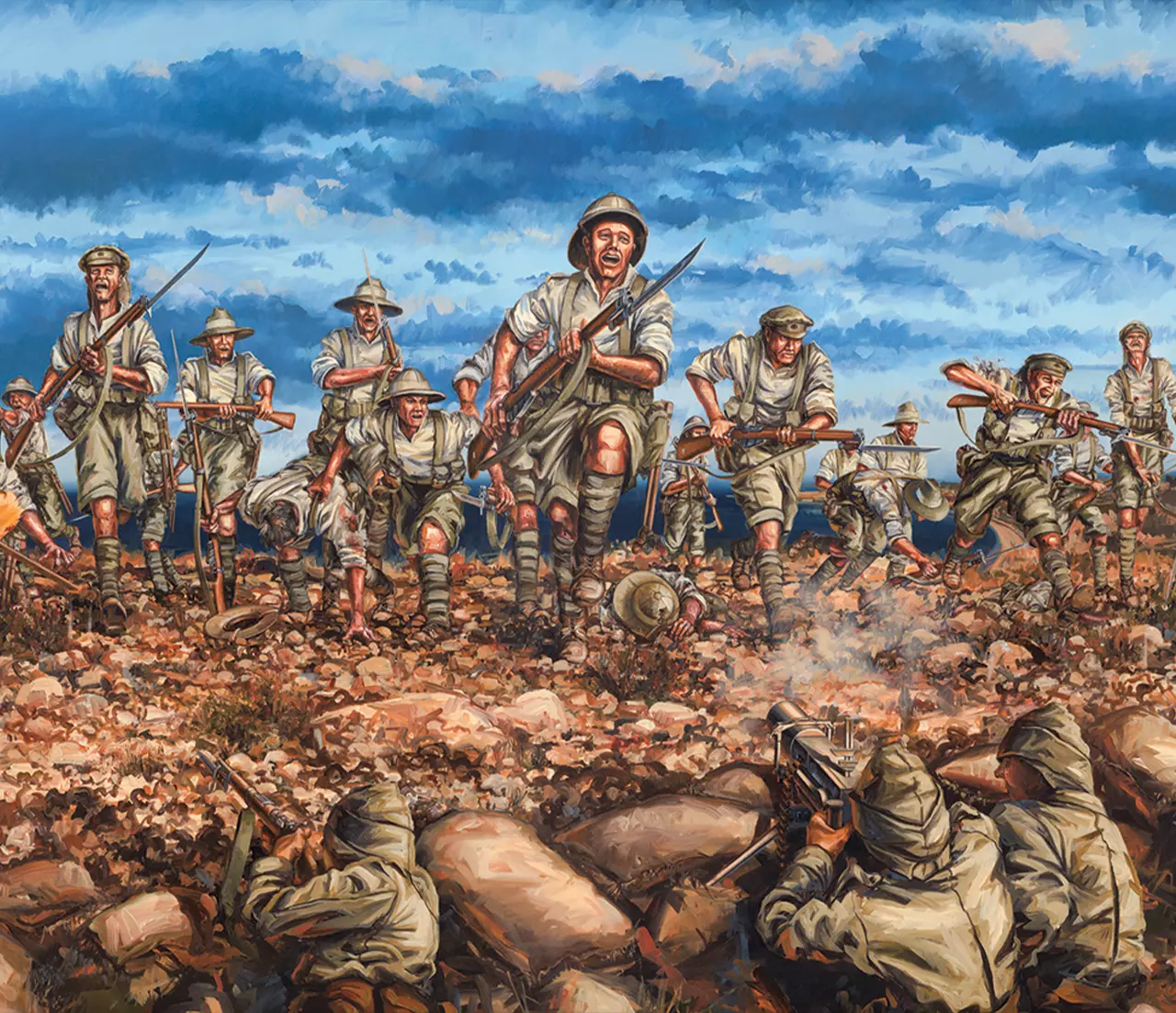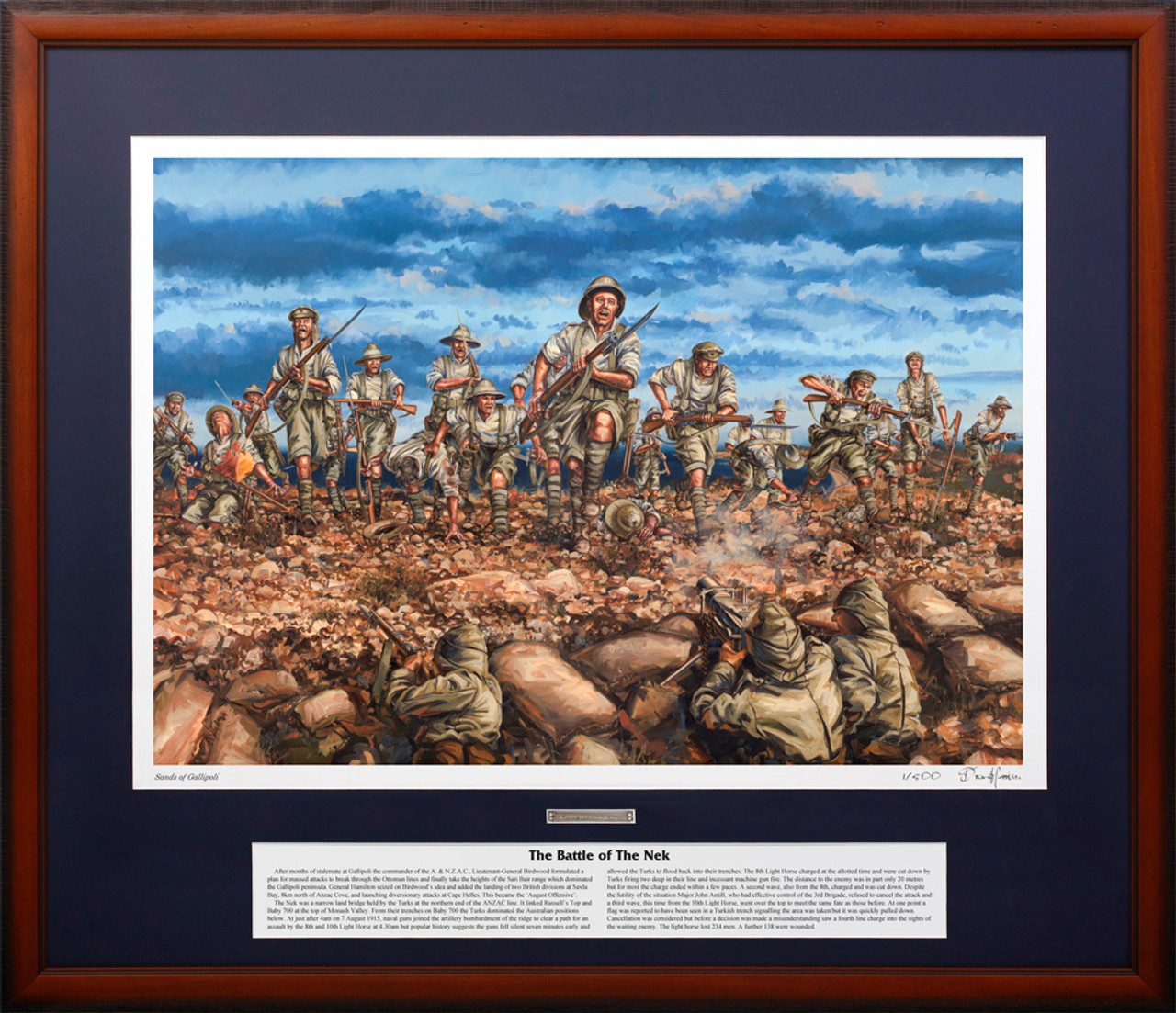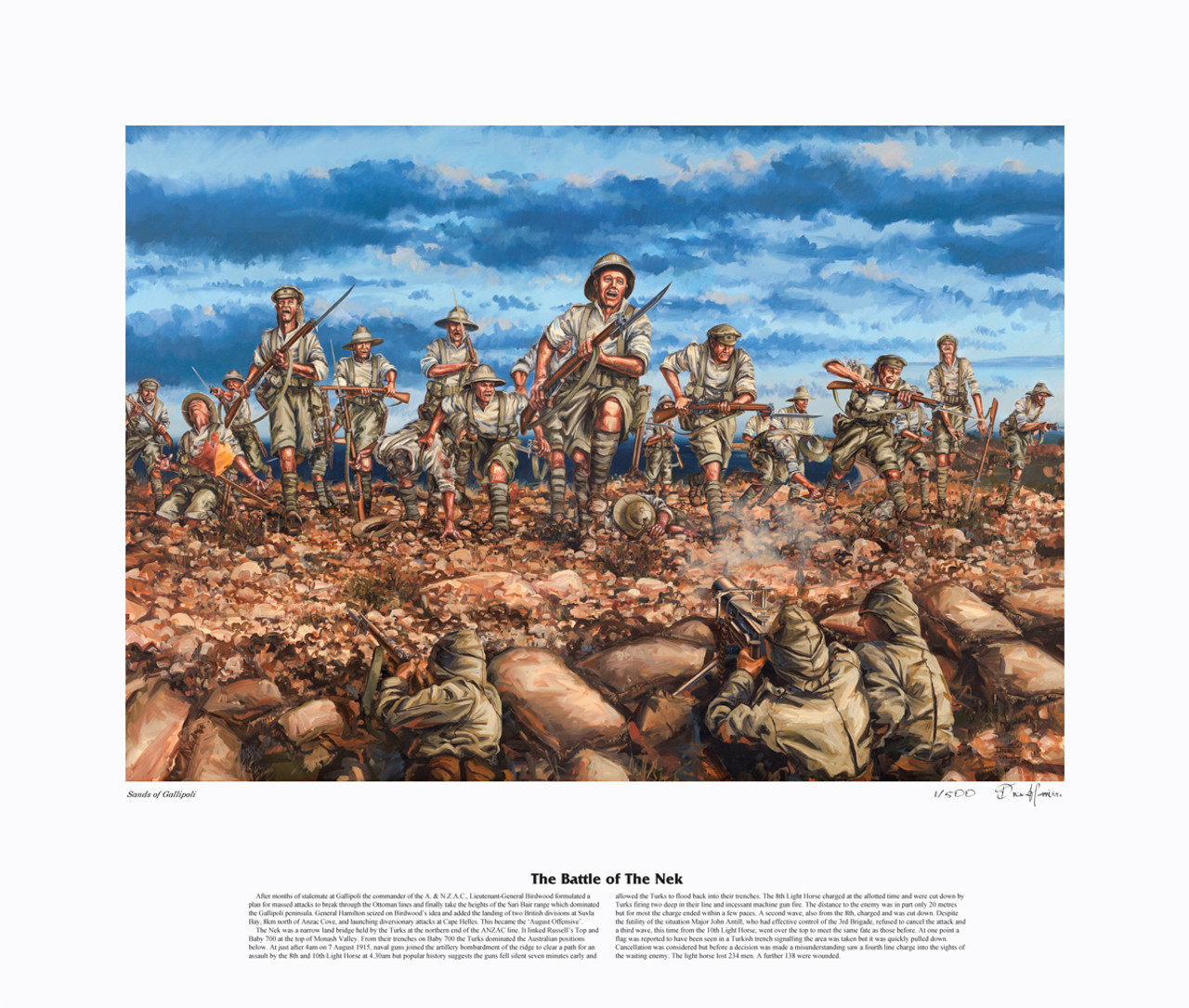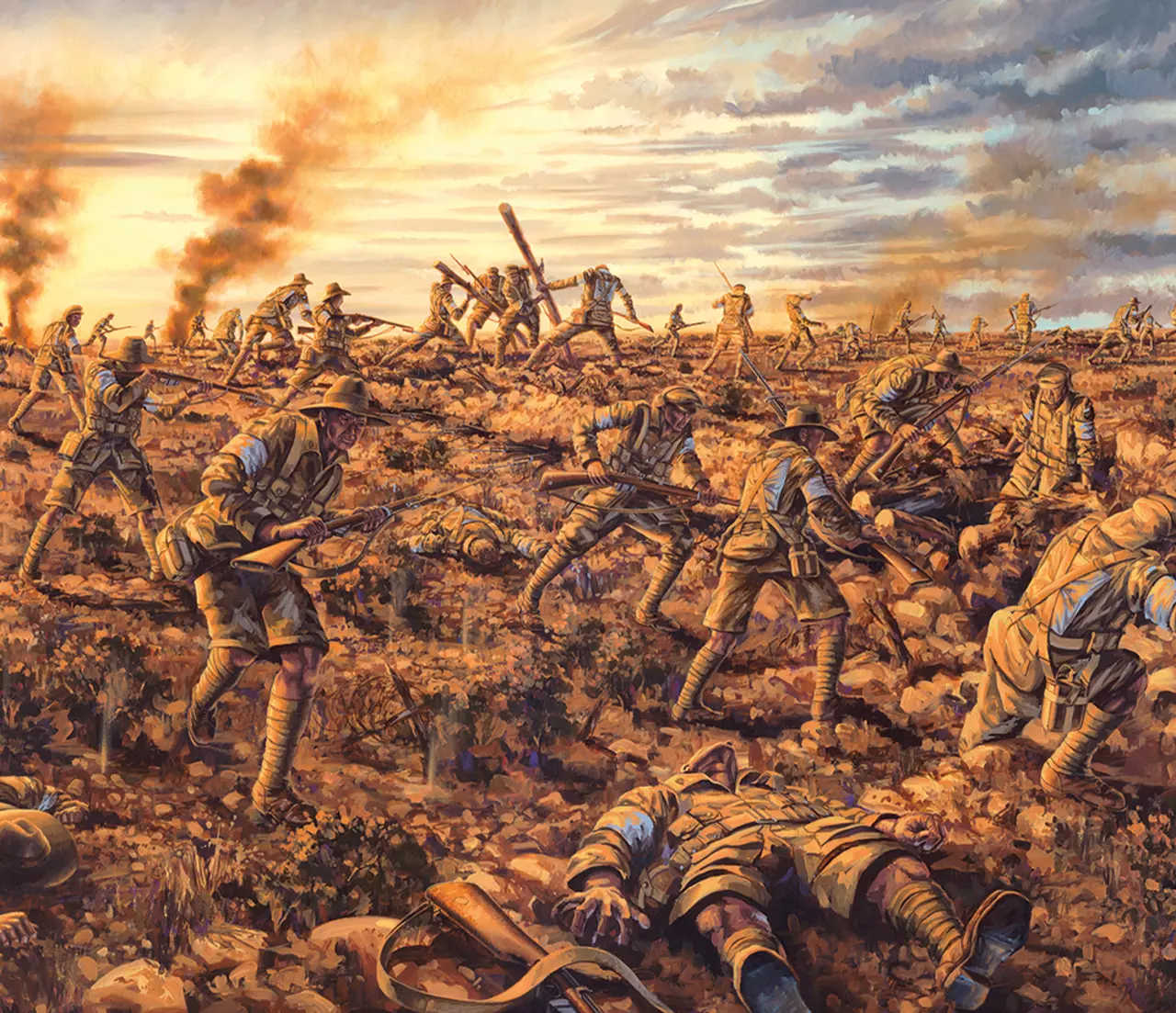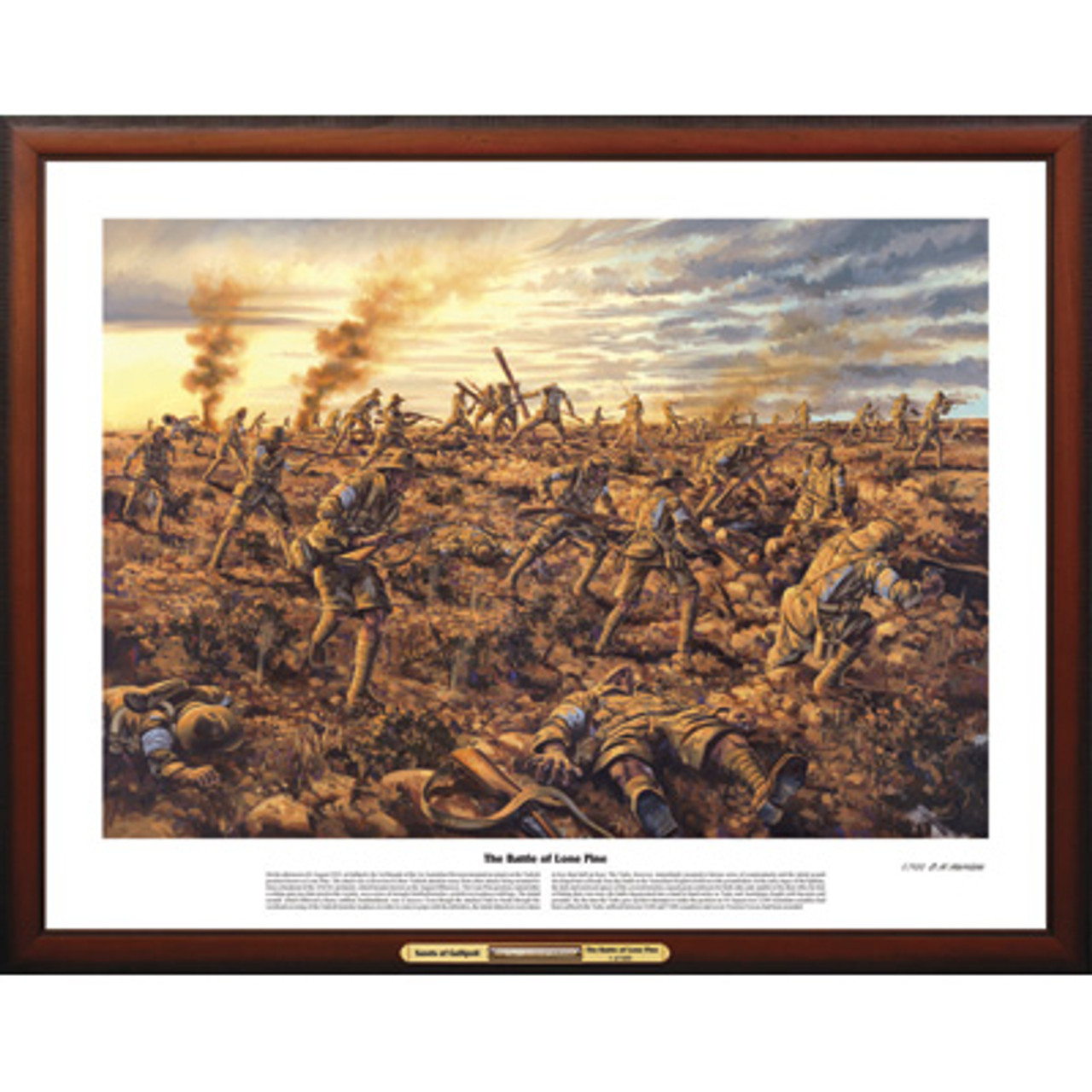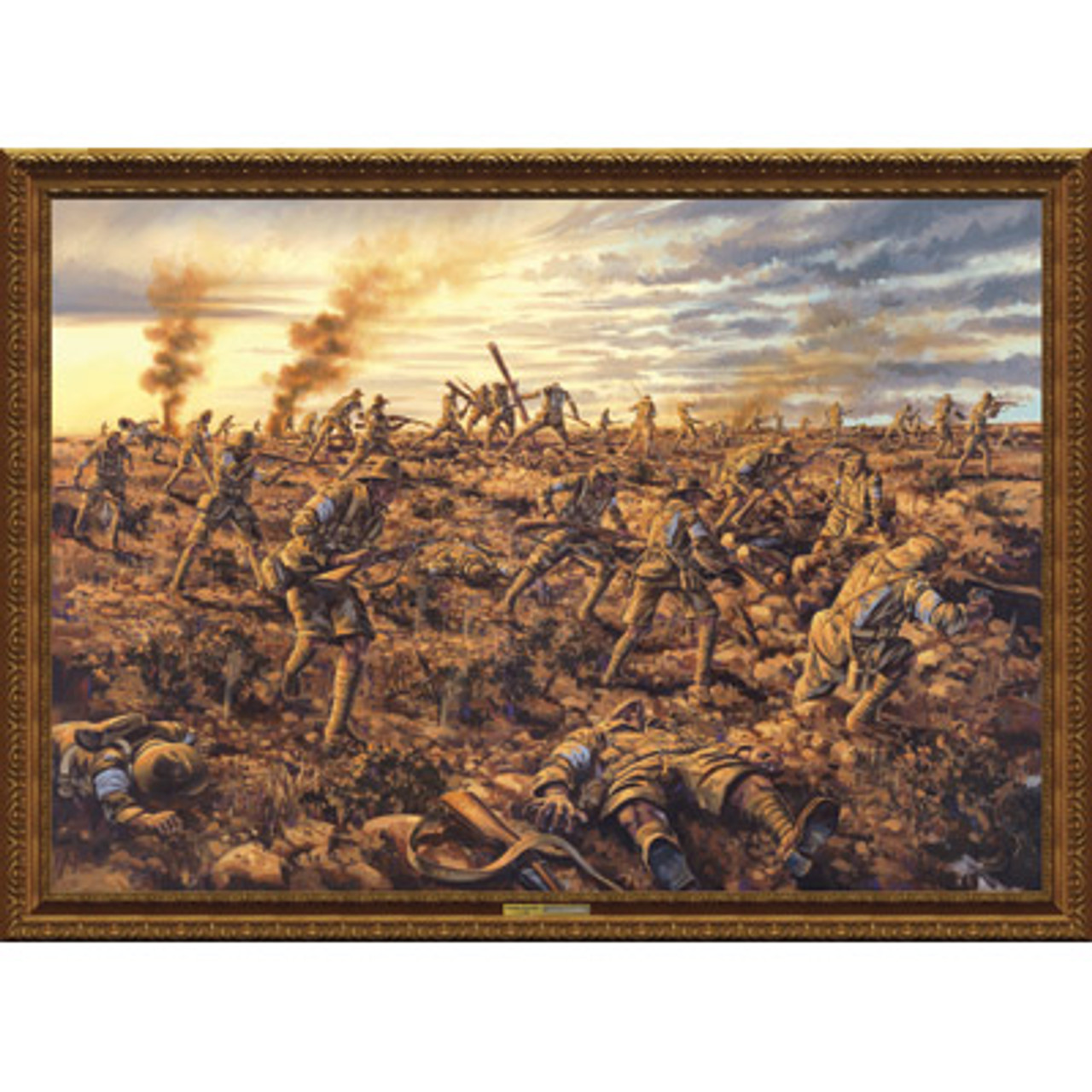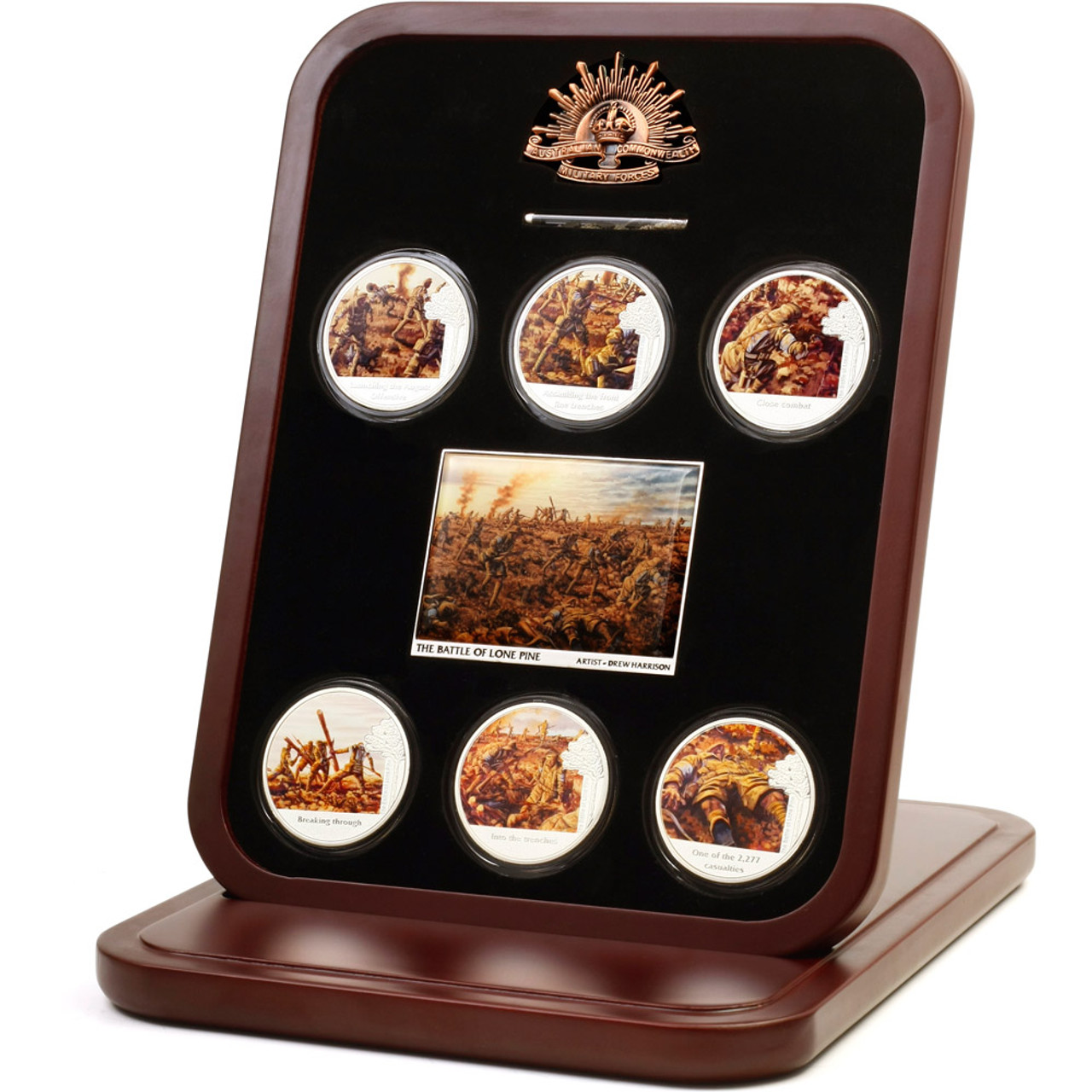Battles of Gallipoli
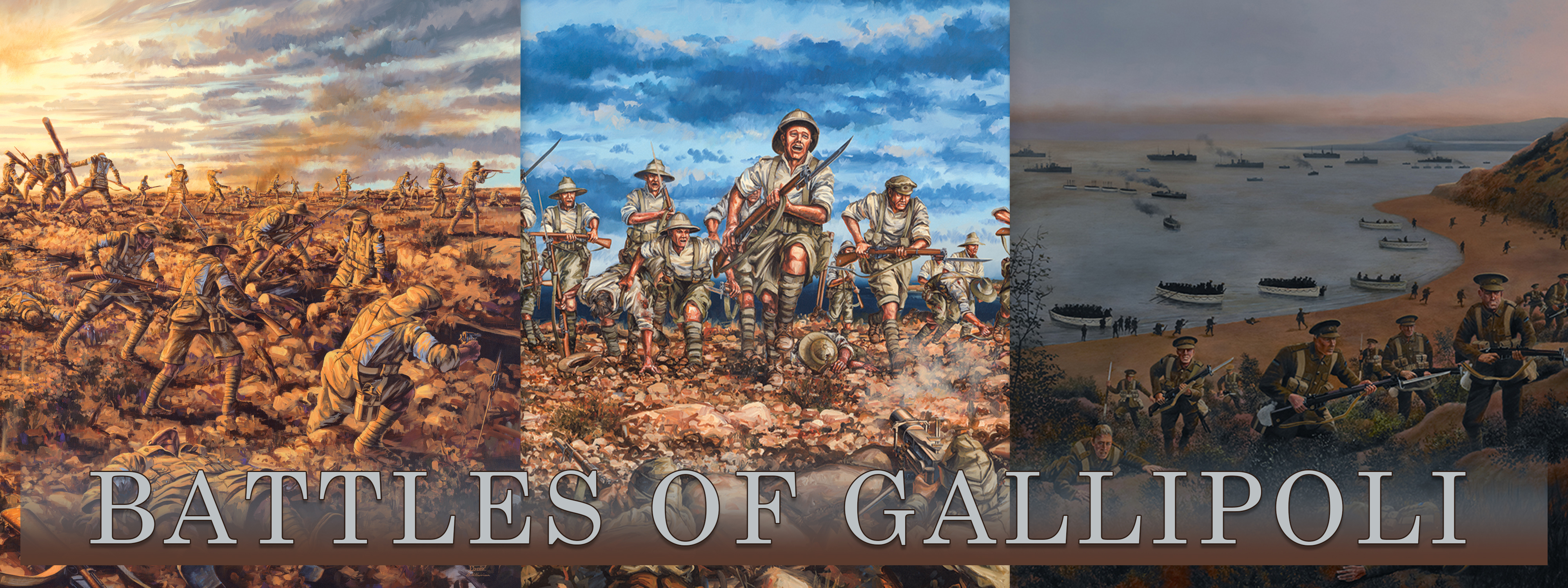
The Battles of Gallipoli collection features two beautiful artworks by leading Australian military aviation artist Drew Harrison The Battle of Lone Pine and The Battle of the Nek, and is completed by the striking artwork The Spirit – Gallipoli Landing 1915 by David Rowlands. This series of artworks depict some of the most recognisable scenes during the events in Gallipoli in 1915.
The Spirit - Gallipoli Landing 1915
The Spirit - Gallipoli Landing 1915 by internationally renowned military artist David Rowlands. David Rowlands is one of the world's finest living military artists. His atmospheric oil paintings present a realistic record of the dramatic events of war and have won him Royal favour and commissions from military organisations around the world. * What the critics say - This painting is the most accurate depiction to date of the dawn landing at Anzac Cove on 25th April 1915. It captures the essence of the action some thirty minutes after the initial landing and strips away the myth associated with this iconic action in Australian military history. Clearly, the artist has researched the subject meticulously, down to the details of the uniforms, headdress and equipment worn that day, the terrain, the shipping offshore, and the light casualties sustained by the Australians around the cove at the beginning of the action. Brigadier Chris Roberts AM, CSC (Rtd)
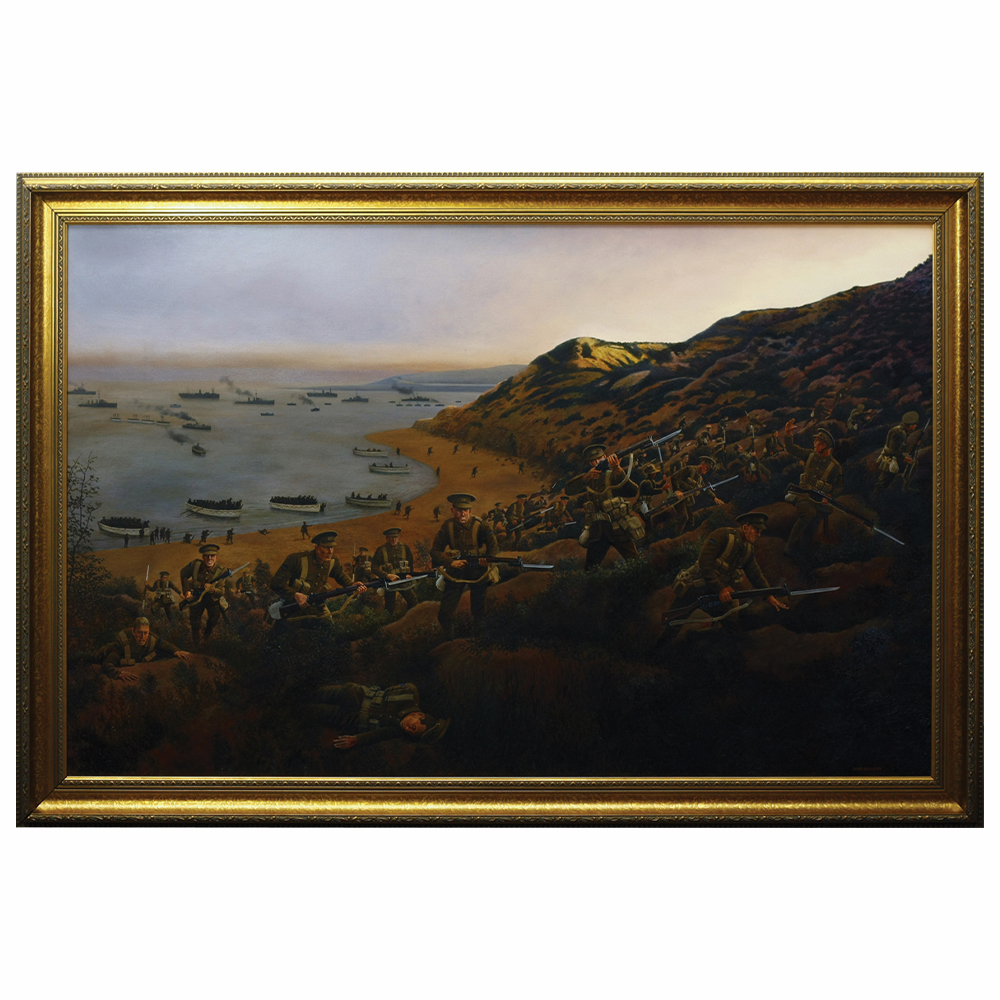
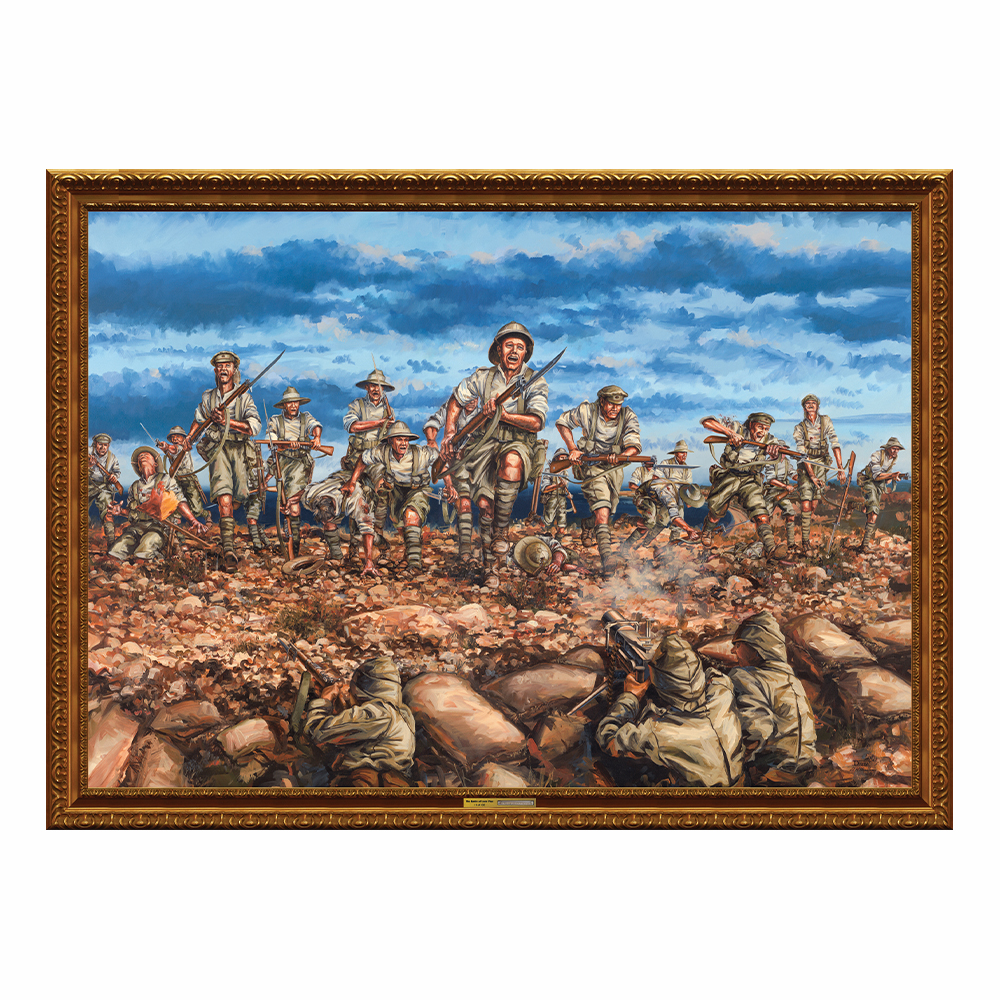
The Battle Of Nek
7 August The Battle of the Nek by Drew Harrison. This painting is the result of extensive and painstaking research into the tragic charge of the light horse at The Nek on 7 August 1915. Uniquely depicted from the aspect of the Turkish forward trench, we believe that the painting accurately depicts the early moments of the charge, when the first line of light horsemen hurled themselves across the few metres separating the combatants, only to be bloodily scythed down before they could even reach the enemy lines.

The Battle Of Lone Pine
The Battle of Lone Pine, one of the most famous actions of the Gallipoli campaign, was mounted as a diversion to draw Turkish attention away from assaults against Sari Bair, Chunuk Bair and Hill 971. These operations, which became known as the August Offensive, were designed to affect a breakout from the ANZAC perimeter. The Lone Pine battlefield, named for a solitary Turkish Pine that stood there at the start of the fighting, stands near the centre of the eastern line of the Australian and New Zealand trenches around Anzac Cove on a rise known as '400 Plateau', which joined 'Bolton's Ridge' to the south with the ridge along the east side of 'Monash Valley' to the north. The terrain here is comparatively gentle and the opposing trenches were some distance apart with a flat no-man's land between. The attack was launched by the 1st Brigade in the late afternoon of 6 August 1915 following a long artillery bombardment. The attackers were faced with formidable Turkish positions, sections of which were securely roofed over with pine logs. In places the attackers had to break in through the roof of the trench systems in order to engage the defenders. The main Turkish trench was taken within 20 minutes of the initial charge but this was the prelude to four days of intense hand-to-hand fighting.
